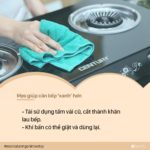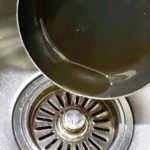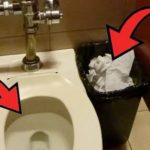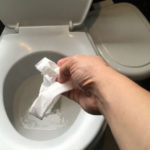Many people have the habit of disposing of waste in a haphazard manner by pouring it directly into the sewer without knowing that it is extremely harmful. Over time, this can cause the wastewater system to emit foul odors, become blocked, and require costly repairs and replacements.
What should not be flushed down the drain?
You may be inclined to pour these items into the drain because you don’t immediately see them causing a blockage, but if you continue with this incorrect habit, a clog is bound to occur sooner or later. Furthermore, some items, while not prone to clogging drains, pose an environmental “poisoning” risk.
Grease and oil
If you thoughtlessly pour excess grease and oil directly into the sewer, it will stick to the sewer walls, harden, and gradually narrow the sewer, leading to a blockage after a while. Some types of salad dressings, butter, and mayonnaise also contain grease and oil, which can adhere to the sewer walls.
Therefore, you should remember that grease and oil are among the things that should not be flushed down the drain. Before washing dishes, pots, and pans, you should wipe off any remaining sauce on the dishes/utensils into the trash, and cooking oil should be allowed to cool before being poured into the trash.
Coffee grounds
Coffee grounds are one of the worst culprits for causing drain blockages. Instead of pouring them down the sink, you should throw them in the trash or use them as soil for plants.
To prevent coffee grounds from building up in the pipes, you can freeze some vinegar in an ice tray, drop several vinegar cubes into the drain, and run hot water for a few minutes. This method helps push the coffee grounds down the drain and flush them away.
Eggshells
Many people think that crushed eggshells can easily slide down the drain, but in reality, they increase the chances of clogging drains because the main component of eggshells, calcium carbonate, is insoluble in water.
Small pieces of eggshells accumulate over time and form a large obstruction in the water pipes. Additionally, the sharp edges of the eggshell fragments can catch and carry other debris down the drain, causing blockages.
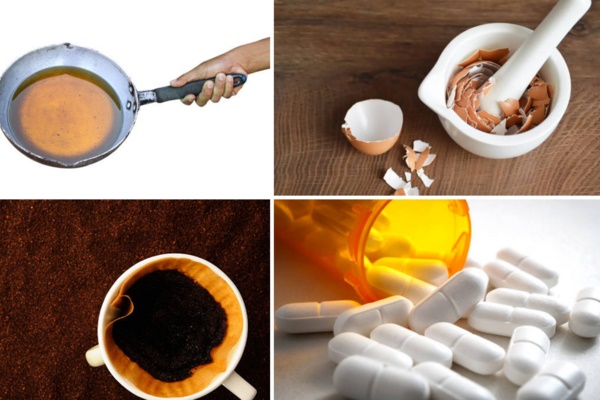
Things that should not be flushed down the drain. (Image: Istock)
Medications
Due to concerns about someone accidentally ingesting or pets consuming medications, many people have the habit of crushing pills and pouring them into the drain without realizing that the substances in medications can potentially seep back into the water and the environment.
Therefore, if you want to dispose of expired or unused medications, you should tightly seal them and throw them in the trash, potentially by dirtying the medication before discarding it.
Paper-based products
The only paper-based product that should be flushed down the drain is toilet paper because it is specifically designed to break down in water.
However, tissues, cotton balls, and sanitary pads are among the things that should not be flushed down the drain and should be thrown in the trash because they have high absorbency and can easily block the pipes.
Paint
Paint is an absolute no-no to be poured down the drain, even though it is a liquid. Paint can cause environmental pollution and clog the drain.
Additionally, hair, rice, noodles, and pho should not be flushed down the drain to avoid the risk of clogging.
Methods for dealing with clogged drains
When your household drain shows signs of blockage, you can apply the following remedies (call a plumber if you notice a severe blockage or if self-treatment is ineffective):
– Use warm water between 50 – 70 degrees Celsius to unclog the drain when it is blocked with soft waste (such as toilet paper, food residue)… Avoid using water above 100 degrees Celsius because excessively hot water can potentially damage or reduce the lifespan of the pipes.
– Purchase a drain cleaner powder and follow the instructions on the packaging. Note that drain cleaner powder is only effective for soft waste and organic waste.
– Use baking soda/vinegar/coca powder to clear the drain. This method is only effective for mild blockages and for organic household waste.
– Use a metal clothes hanger to hook the debris.
Source: VTC
























